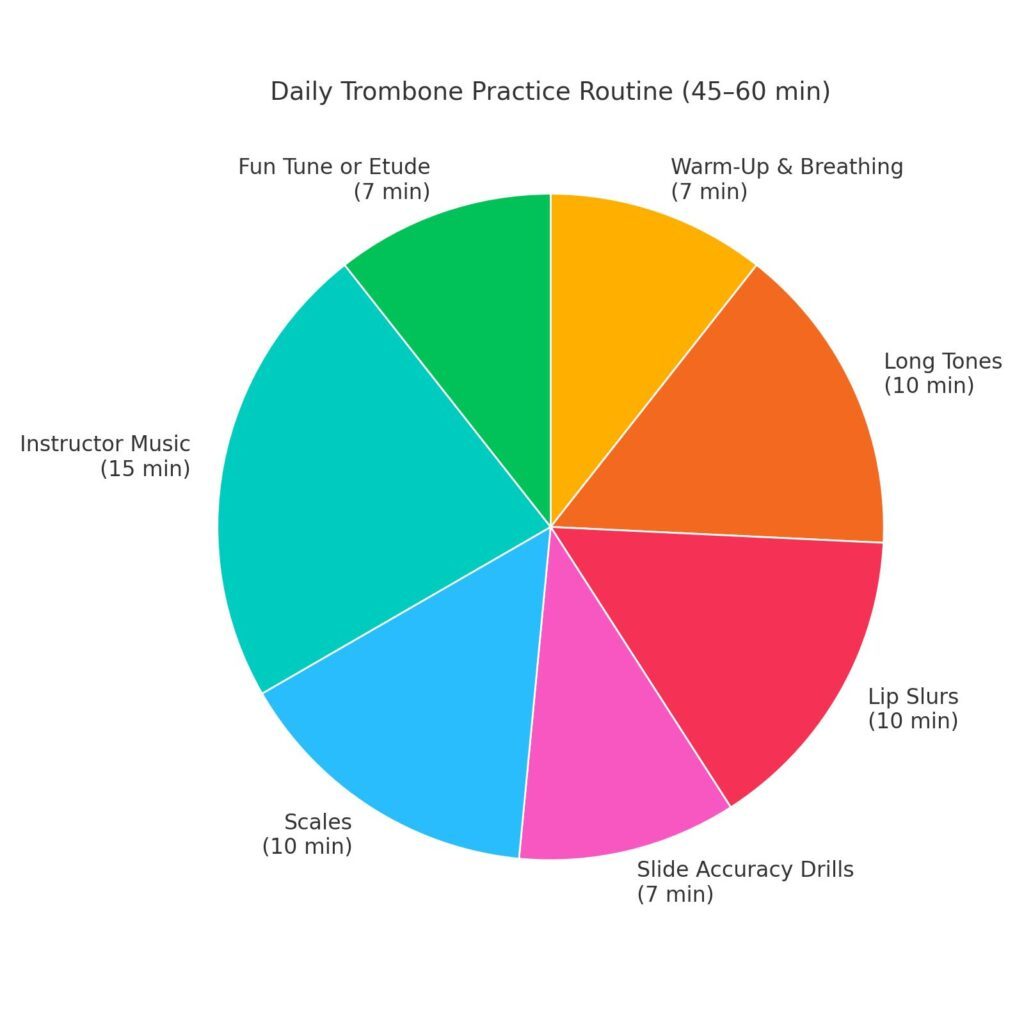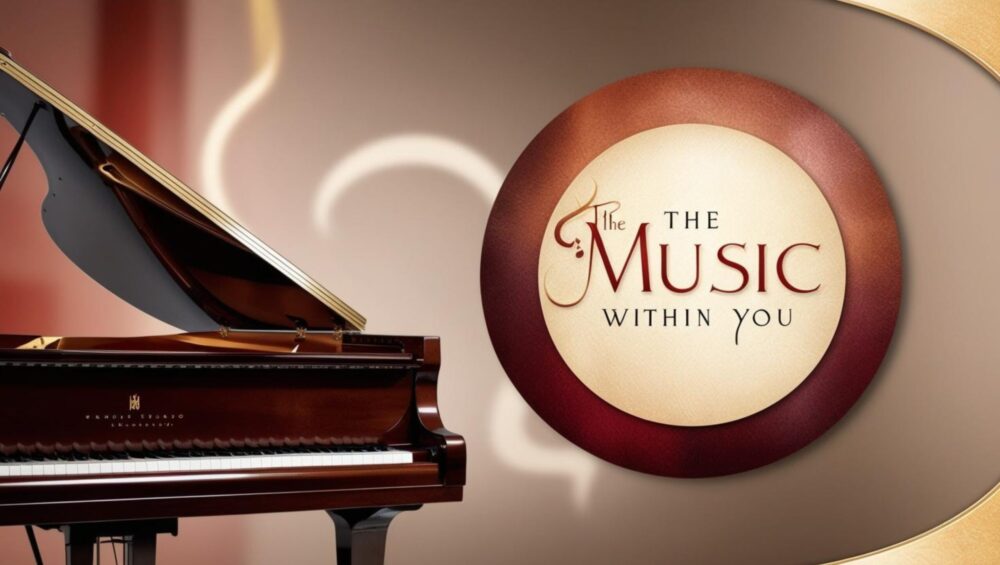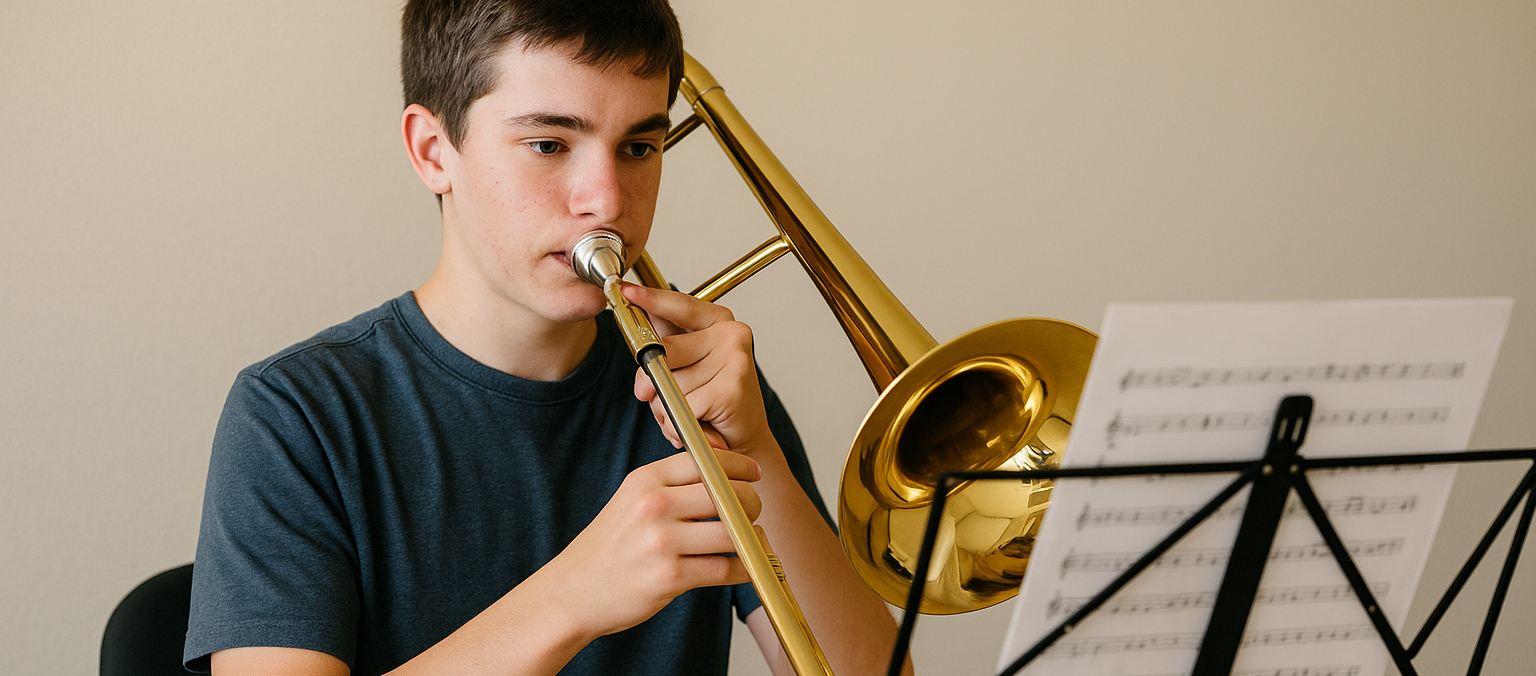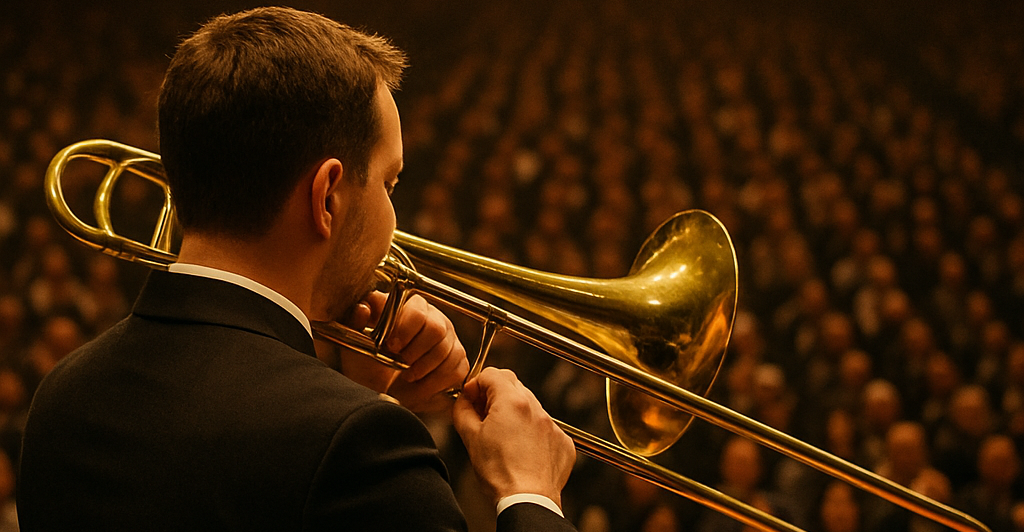Designed for early teens | Solo practice | Focuses on tone, slide control, embouchure, and musical growth
1. Breathing and Warm-Up (5–7 minutes)
- Deep breathing, mouthpiece buzzing (optional), and long mid-range tones (e.g., B♭, F).
- Goals: loosen up lips, establish good air flow, and warm the embouchure.
2. Long Tones with Slide Practice (7–10 minutes)
- Hold single notes in different positions for 6–8 seconds.
- Emphasize accurate slide placement and centered tone.
- Great for building breath control and tone stability.
3. Lip Slurs (8–10 minutes)
- Slur between partials (e.g., B♭–F–B♭ in 1st position).
- Focus on smooth transitions using air and embouchure—not the tongue.
4. Slide Accuracy & Ear Training (5–7 minutes)
- Match pitches with a tuner, app, or piano.
- Practice quick, clean slide movement between notes.
- Develops muscle memory and pitch recognition.
5. Scale Practice (7–10 minutes)
- Start with B♭ major. Add other simple scales over time.
- Practice tongued and slurred.
- Say slide positions out loud to reinforce learning.
6. Instructor-Assigned Music (10–15 minutes)
- Work on the songs, etudes, or exercises assigned by their band or private teacher.
- Strategies:
- Break the music into small sections.
- Practice slowly at first.
- Circle trouble spots and loop them repeatedly.
- Use a metronome if rhythm is tricky.
- Mark slide positions and breaths in the music.
🟡 Goal: Apply all your warm-up, tone, and technique work into real music, preparing for lessons or performances.
7. Optional Etude or Fun Tune (5–7 minutes)
- Play a song you enjoy or a short beginner etude.
- Examples: folk tunes, simple jazz/blues lines, familiar melodies.
Breaks & Lip Resting
- Insert short 30–60 sec rests between each section.
- Follow the “play a minute, rest a minute” rule during intense exercises.
- Avoid overplaying — stop if tone quality drops or lips feel swollen.






